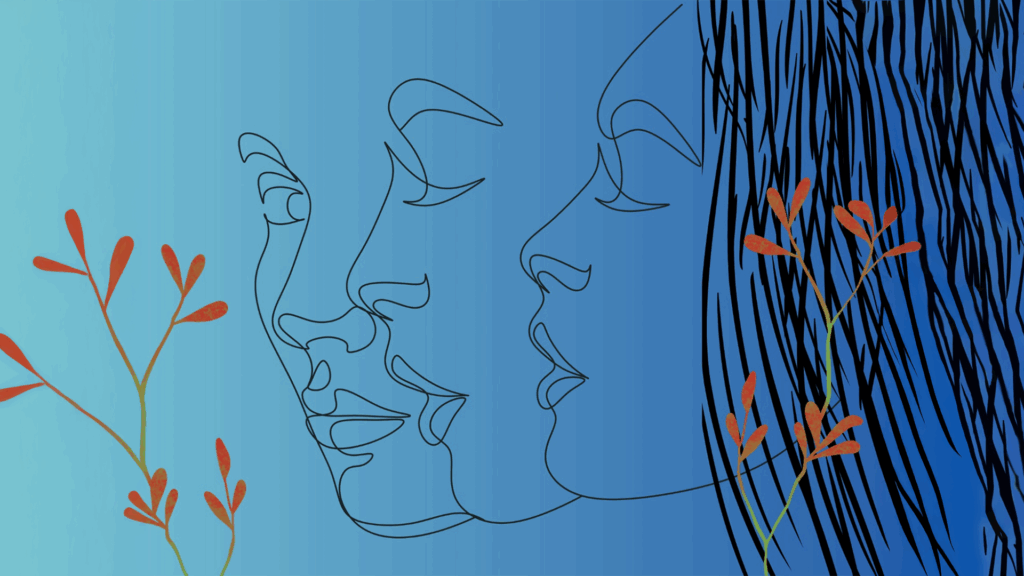*Certain details of this story, including names, have been withheld or changed to protect the confidentiality and safety of our clients and staff.*
She carried them like stones sewn into her ribs, two warrants, old but unforgotten. Every day began with the same calculation, If I go to the courthouse, will I come home? The system had never been kind to her. It had taken people she loved, locked them away for mistakes made in hunger, in kinship with addictions, in the crushing grip of poverty. Justice, in her experience, was not about truth. It was about who could endure the most punishment.
But this time, she reached out.
At the Indigenous Justice Centre, no one asked her to justify her fear. The lawyer and the Resource & Support Worker (RSW) listened, not just to the story of her charges, but to her. The words they offered were simple, but they changed everything.
“We’ll go with you. We’ll stay with you.”
And they did.
When she faced the registry, their shoulders brushed hers, a silent reminder, you are not a file number here. You are a relative. No handcuffs. No cold cell. Just the steady rhythm of footsteps walking out together, the way they’d walked in.
The Road North
The real test lay further North, in a courtroom 12 hours away where a theft charge, born of necessity years ago, now threatened her future. Worse still was the drug file from another city that could have buried her under years of incarceration.
But her lawyer did something radical, she listened. Letters from Helpers, from Elders, from the people who knew her heart, these became her shield. The Crown expected a guilty plea. Instead, they were offered transformative justice, a path that demanded accountability but also the offering of healing. No fingerprints. No shackles. Just the chance to rise.
Still, the journey terrified her. The ferry ride, the winding highway, the unfamiliar town where the courtroom loomed like a storm cloud. She had no money for travel. Her body, in need of medication just to make the trip.
So, they traveled as a family.
The RSW coordinated with her health team, ensuring timed breaks on the journey coincided with pharmacy stops where her medication was ready, and her body was cared for. She could not have made the trip without her Indigenous Justice Centre family. The lawyer prepared her, not with legal jargon or tactics, but with truth, “You know what happened. You have the right to speak it.”
Between court sessions, they walked the shoreline. The sound of waves, the cry of gulls, the way the tide pulled back to reveal glistening shells, these were small moments of medicine. Once, she crouched in the damp sand to free a crab tangled in a fishing line. As she worked the knots loose, her hands didn’t shake. I am still here, she thought. I can still do good.
The Stand: When the System Finally Listens
On the day of the trial, she spoke, as a woman who had survived. The Crown tried to twist her words, as the system does. But this time, she was ready.
“Not guilty.”
The words landed deep into her heart. The judge had listened. More importantly, she had listened to herself. To her own voice, strong and clear.
Why This Changes Everything
In another world, one without Indigenous Justice Centre, this story might have ended in a cell. She wouldn’t have made the court appearance. Legal Aid would not have paid for travel. No RSW would have ensured her wellness. No one would have had time to prepare her spirit, and her testimony.
But Indigenous justice is not only concerned with processing cases. It includes our responsibility to the great remembering-
That our people are not problems to be managed.
That facing your past can be an act of courage, not shame.
That the system can bend, when met with enough humanity.
This woman’s strength was always hers. The lawyer and RSW didn’t give it to her. They simply held space for her to reclaim it.
The Fire We Tend
Stories like this are not endings. They are sparks, proof that justice can feel less like a verdict and more like coming home.
Real change doesn’t happen in courtrooms. It happens in the quiet moments:
In the ferry ride where someone realizes, I am not alone.
In the seashells gathered as evidence of a world beyond punishment.
In the crab set free, just as she was.
This is the work of the BC First Nations Justice Council, and the Indigenous Justice Centres. It’s not about speaking for our people, but ensuring they are heard. Not to fix broken systems, but to prove our people were never broken to begin with
WRITERS NOTE: On Story Sovereignty
Stories are sacred. They carry the weight of our lived experiences, our struggles, and our resilience. In sharing this story, we have chosen to remove names, places, and specific details, not to diminish its truth, but to protect the spirit and sovereignty of the person at its heart.
Too often, Indigenous stories are extracted, reshaped, and sold for the benefit of others. We do not trade our people’s narratives for funding or sympathy. Instead, we offer this as a teaching story, one that reflects the realities many of our relatives face in colonial systems, and the transformative power of relational, trauma-informed advocacy.
This story is real. The fear, the courage, the long road to justice, all of it happened. But it belongs to the person who lived it, not to the spectacle of injustice. We share it with respect, humility, and the hope that it lights the way for others.
